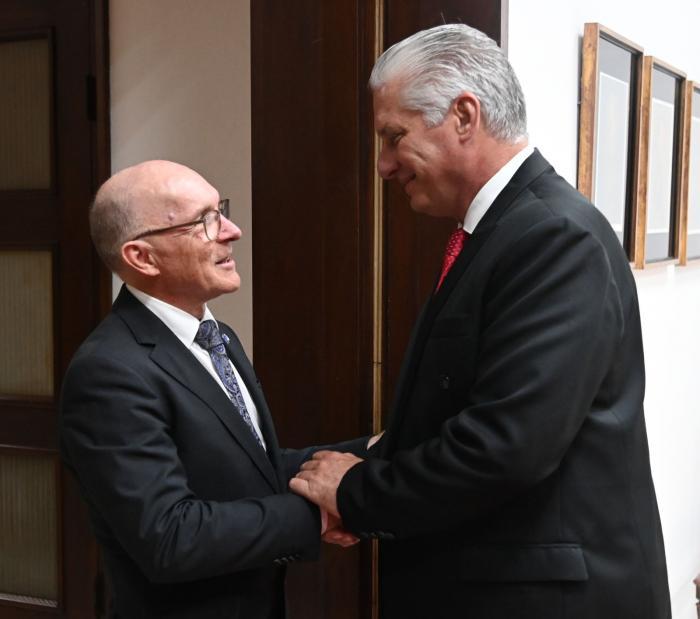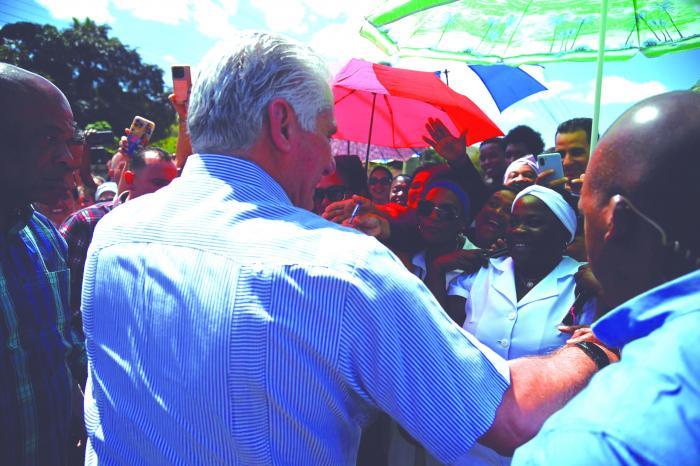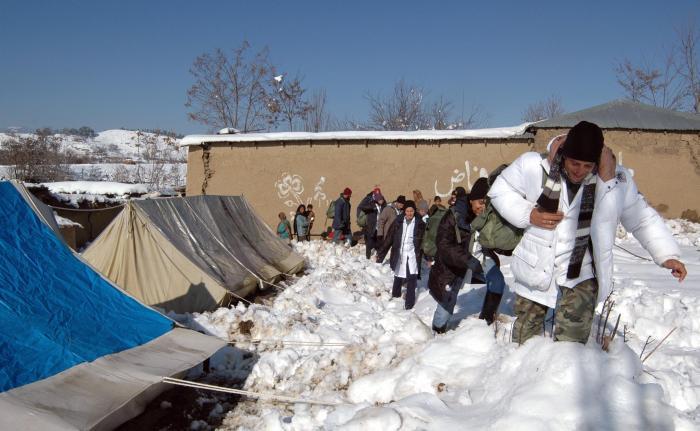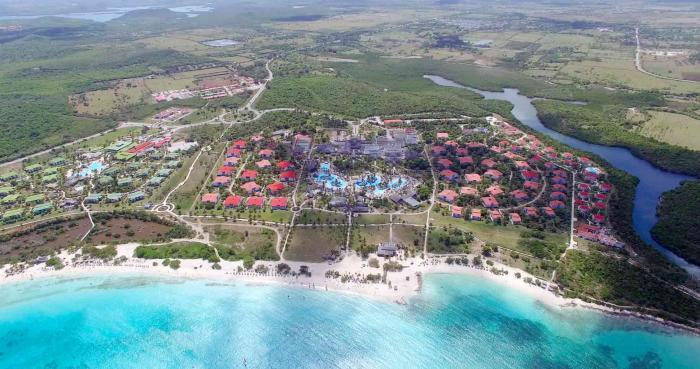


“We once again ratify Cuba's unwavering commitment to peace, to the non-proliferation of nuclear weapons and to the non-conduct of nuclear tests,” said the First Secretary of the Party Central Committee and President of the Republic, Miguel Díaz-Canel Bermúdez, to Robert Floyd, executive director of the Comprehensive Nuclear-Test-Ban Treaty Organization (CTBTO).
The President received the leader of the international organization on Tuesday afternoon at the Palace of the Revolution; he thanked the support and relations that the CTBTO has maintained for years with the largest of the Antilles, and acknowledged Floyd's personal performance for the existence of “a robust, armored, effective and efficient verification system” on nuclear weapons.
He valued the intense work program that the Executive Director of the organization has developed during these days, which is already leaving traces, such as - stressed the Head of State - the strengthening of CTBTO relations with a group of Cuban institutions, including centers and agencies of the Ministry of Science, Technology and Environment (Citma), the Minrex, the University of Havana, the Higher Institute of International Relations and the Civil Defense.
Díaz-Canel thanked the CTBTO for its support in training experts and personnel in these matters, and for the facilities to access the international data center in order to have reliable information, and on that basis make comparative studies, update and project Cuban programs and statistics.
All these -the Cuban President expressed to the CTBTO Executive Director- are ample reasons for you to be welcome in Cuba, together with the rest of your delegation; with this visit -he added- our relations become closer.
Mr. Robert Floyd told Díaz-Canel that it was a great honor to be able to meet “the leader of a country that has been so committed to the non-proliferation of nuclear weapons and total disarmament”.
He recalled that after the October Crisis of 1962, a year later, the Partial Nuclear Test Ban Treaty was signed, a sign -he argued- that “from crises, from difficulties, new opportunities also appear”.
“These are dark night times for achieving disarmament and non-proliferation of nuclear weapons; however, our organization continues to be a light, a flame, despite these circumstances,” said the Executive Director of the Comprehensive Nuclear-Test-Ban Treaty Organization, who recalled, by the way, that Cuba had been among the first countries to ratify it.
The Treaty on the Prohibition of Nuclear Weapons entered into force on January 22, 2021, after reaching the required 50 ratifications; Cuba was the fifth country in the world to ratify it, initialing it on September 20, 2017, the same day it was opened for signature at the United Nations headquarters, and ratified it on January 30, 2018, another sign of its commitment to general and complete disarmament.
Mrs. Lynette Floyd, wife of the Executive Director of the CTBTO; Mr. Pedro Penha, assistant to the executive, and Mrs. Alinas Canas, International Relations officer, attended the meeting.
The Cuban side was represented by Eduardo Martínez Díaz, Deputy Prime Minister; Gerardo Peñalver Portal, First Deputy Minister of Minrex; José Fidel Santana Núñez, First Deputy Minister of Citma; and Ulises Fernández Gómez, Director of International Relations of Citma.
Related News

In Matanzas, work is being done with creativity and self-awareness

The “atrocious” act of going around the world to save lives

Cuba reaffirms its commitment to peace and nuclear non-proliferation


